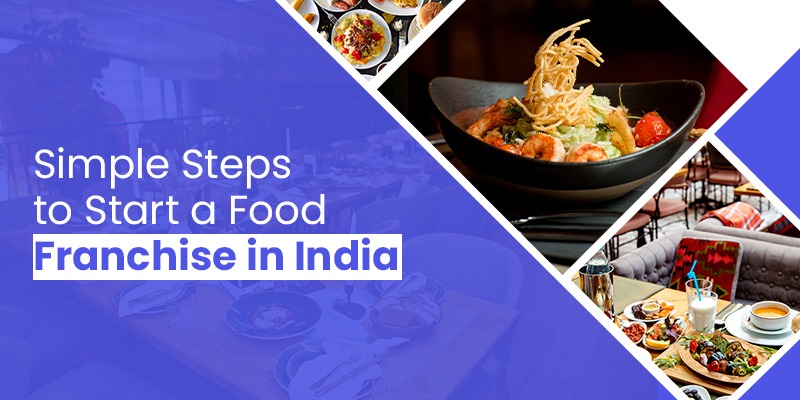The Indian food franchise market is forecasted to grow by approximately 8.1% annually from 2024 to 2028. The sector currently stands at a valuation of about ₹800 billion and is fueled by urbanisation, rising disposable incomes and changing consumer lifestyles.
Consumers in 2025 are increasingly choosing healthy, functional foods and quick-service restaurants (QSRs) that deliver convenience and speed with salad bowl franchises and subscription-based meal plans seeing particularly strong demand.
Why is franchising a safer entry into the food industry?
Opening an independent restaurant often carries high risk, but franchising lowers that risk. Customers already trust the brand and its menu. As a result, outlets attract immediate attention, ensuring faster sales. This makes starting a food franchise a safer choice for investors compared to creating an unknown food concept.
Researching the best opportunities
The first step is to study the food franchise business in India. Investors should compare leading brands, check their reputation and understand customer demand. Analysing whether a brand performs well in metros and tier-2 cities can help decide which franchise suits both budget and long-term goals.
Calculating the investment required
Before applying, it is essential to understand the complete investment. A food franchise in India usually requires funds for the franchise fee, interiors, equipment, licensing and initial marketing. Costs may range widely depending on the outlet model, but clear financial planning ensures smooth operations from the very beginning.
Finding the right location for your outlet
Location is one of the biggest factors in franchise success. A site with good footfall, visibility and accessibility will generate higher revenue. Malls, office hubs and high-street markets are top choices. Many franchisors help partners with site selection to ensure the food franchise starts strong from day one.
Understanding legal requirements and agreements
Starting a food franchise involves completing agreements, applying for FSSAI licences and adhering to hygiene and safety standards. These steps are easier with franchisor guidance. Reviewing the franchise contract carefully ensures clarity about responsibilities, fees and duration of partnership, helping avoid conflicts later in the business journey.
Training and operational support from franchisors
A key advantage of franchising is the structured support provided. Franchisors train staff, standardise recipes and implement proven operating systems. Investors do not need prior restaurant experience as training covers everything from food preparation to customer service. This guidance helps new owners run their outlets smoothly and confidently.
Marketing and promotions that attract customers
Franchisors usually manage national campaigns while supporting local promotions. This ensures the brand remains visible across channels while each outlet benefits from tailored marketing activities. From social media to in-store offers, consistent promotions attract both new and repeat customers, boosting food franchise ROI for investors.
Estimating return on investment
Food franchise ROI depends on the brand, city and outlet type. Many outlets achieve breakeven within 18–30 months, with profits increasing steadily afterwards. Multiple revenue streams such as dine-in, delivery and catering contribute to faster returns, making franchising one of the most rewarding opportunities in India’s food sector.
Steps to apply for a franchise
Once research and planning are complete, the application process begins. Investors need to share financial details, choose a location and go through a franchise approval interview. Once approved, the outlet setup begins, including interiors and staff training. Within months, the food franchise is ready to serve customers.
Final thoughts on investing in food franchising
Franchising offers a structured path for entrepreneurs who want to enter the booming Indian food sector. With brand trust, proven systems and strong customer demand, it reduces risks while ensuring consistent sales. Careful planning, along with franchisor support, makes this model one of the safest investment options.
Exploring franchise options with ABTTA GTM
For those ready to start a food franchise, Abtta GTM connects entrepreneurs with trusted brands across India. We provide access to popular franchises such as Karim’s, TGI Fridays, Bombay Brasserie, Moti Mahal Delux, Manbhavan, Nainital Momos, Coffee n Recharge and Kaka’s Kabab ‘N’ Chicken. With Our guidance on costs, site selection and operations, investors can confidently choose the right brand for long-term growth.
Faqs
1. How do I start a food franchise in India?
To start a food franchise in India, research suitable brands, calculate investment, finalise a location and complete legal agreements. Once approved, franchisors assist with outlet setup, training and marketing support.
2. What is the average cost of a food franchise in India?
The average cost of karims franchise in India usually ranges between ₹15 lakh and ₹50 lakh, depending on the brand, outlet type and city. This includes franchise fees, interiors, kitchen equipment and marketing expenses.
3. How long does it take to get returns from a food franchise?
Most food franchises reach breakeven within 18–30 months. ROI depends on the brand, location and management efficiency. With strong customer demand and franchisor support, food franchise ROI is considered one of the most reliable in the Indian food service sector.
4. Do I need prior restaurant experience to start a food franchise?
No, prior restaurant experience is not required. Franchisors provide detailed training programmed for staff and owners, covering food preparation, customer service and operations. This makes it possible for first-time entrepreneurs to confidently start and run a food franchise business in India.
5. What licences are needed to open a food franchise in India?
A food franchise requires licences such as an FSSAI registration, GST registration and local health permits. Franchisors usually guide investors through the legal process, ensuring compliance with hygiene, food safety and tax regulations to avoid future complications.







